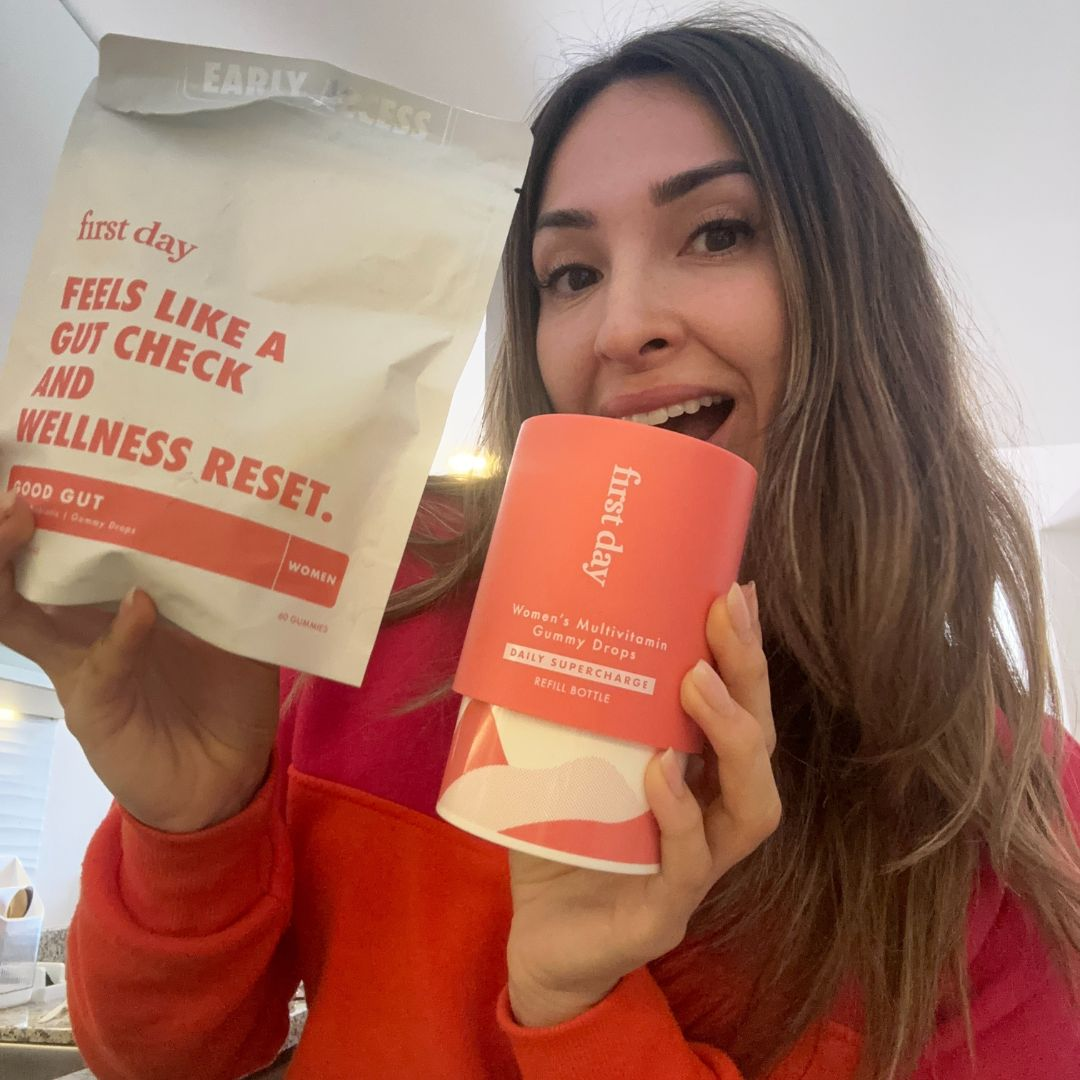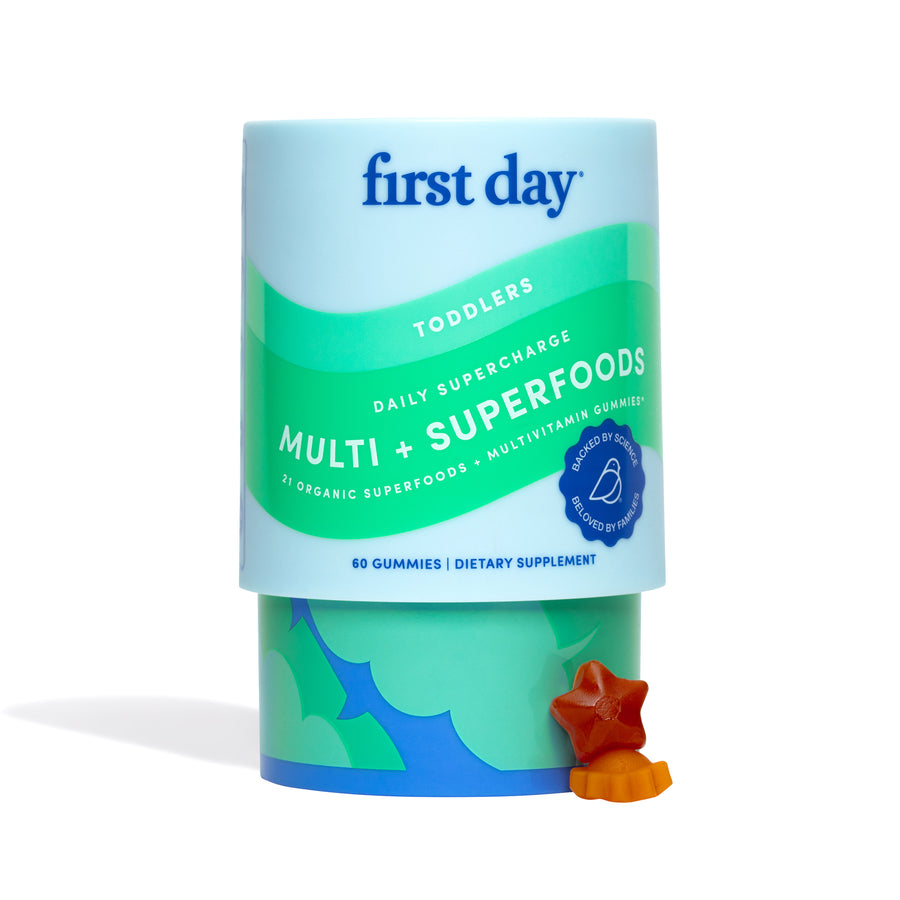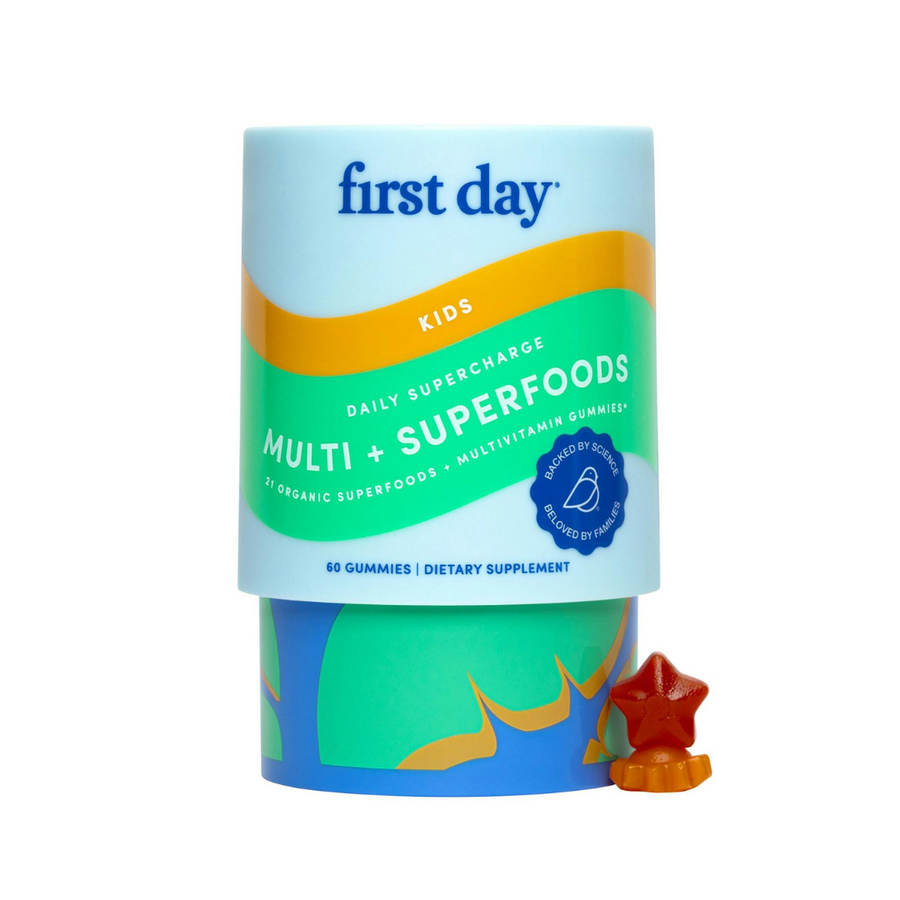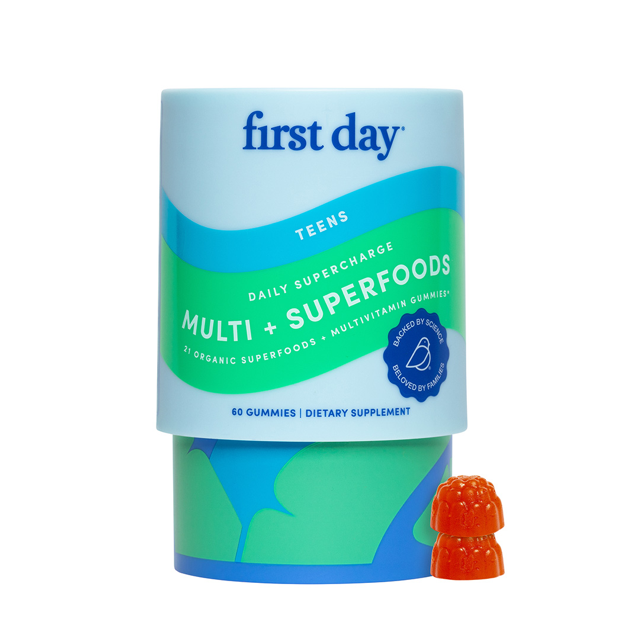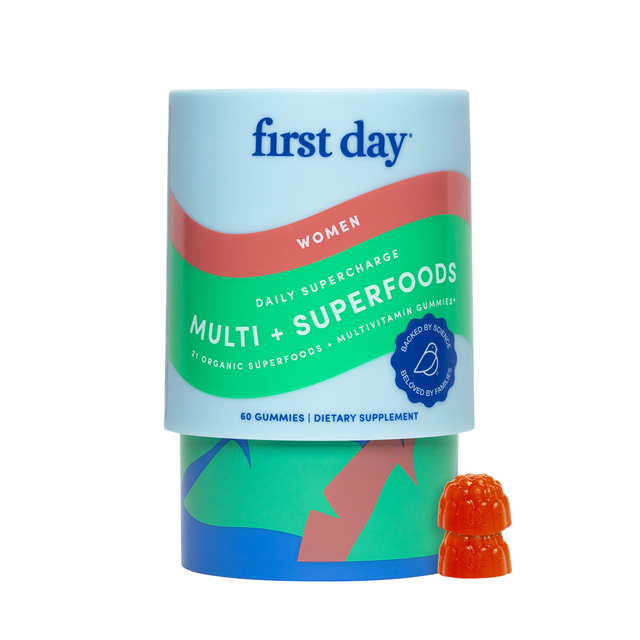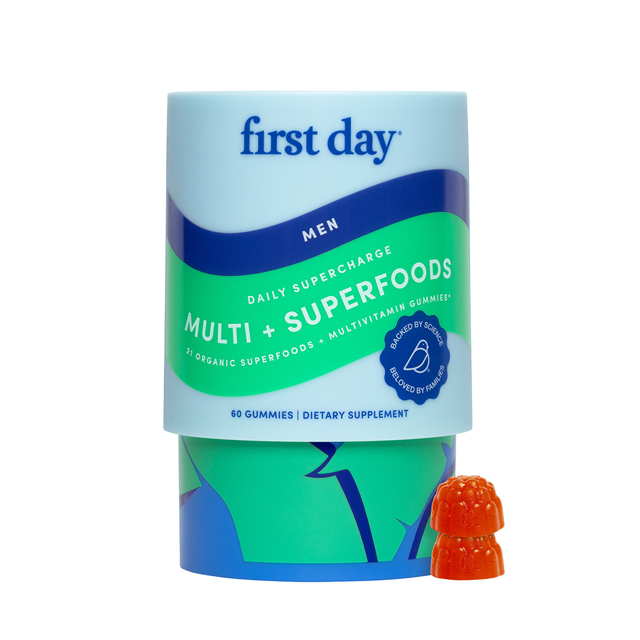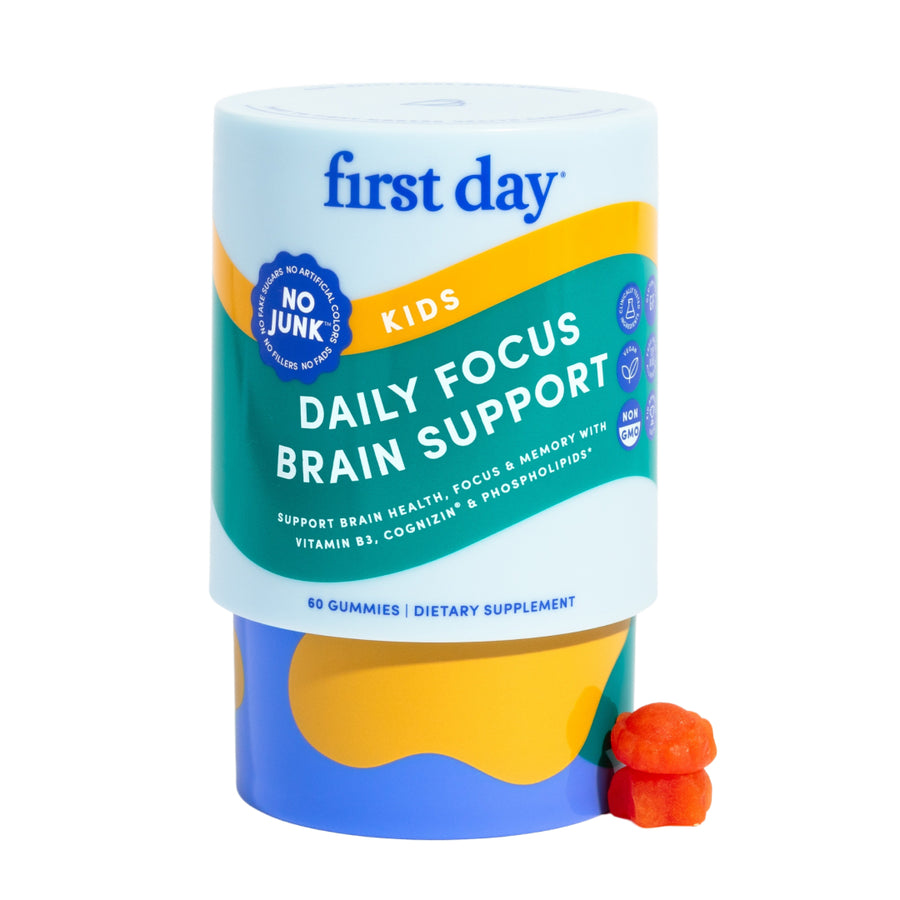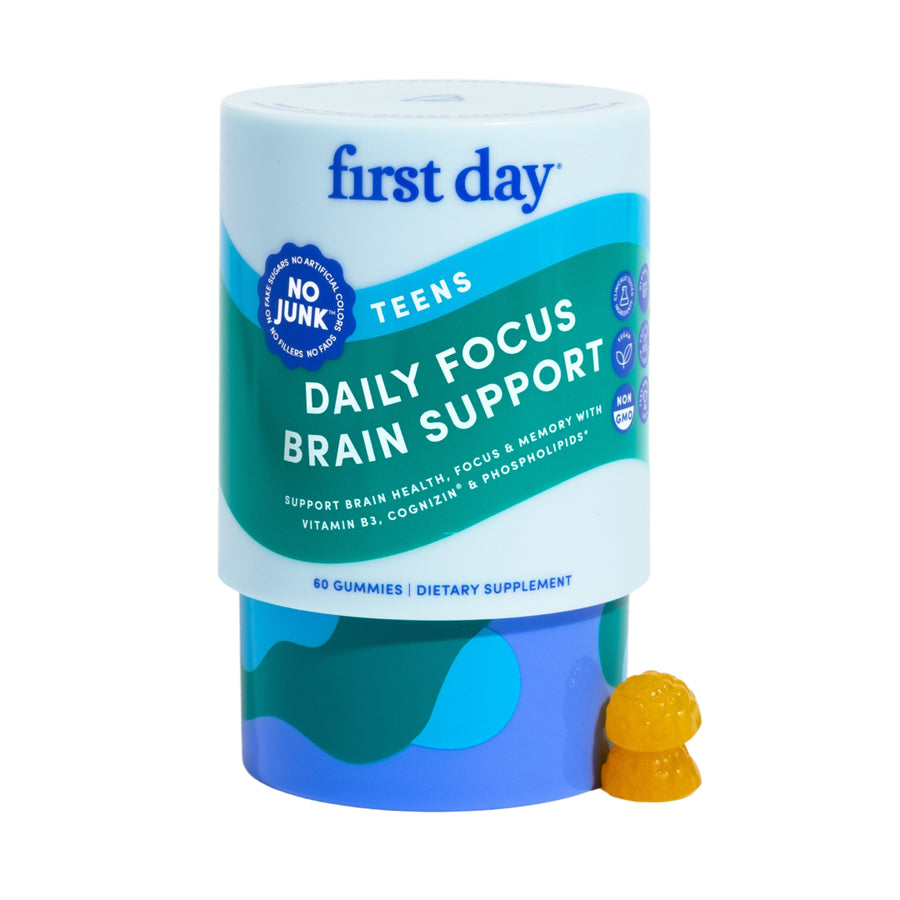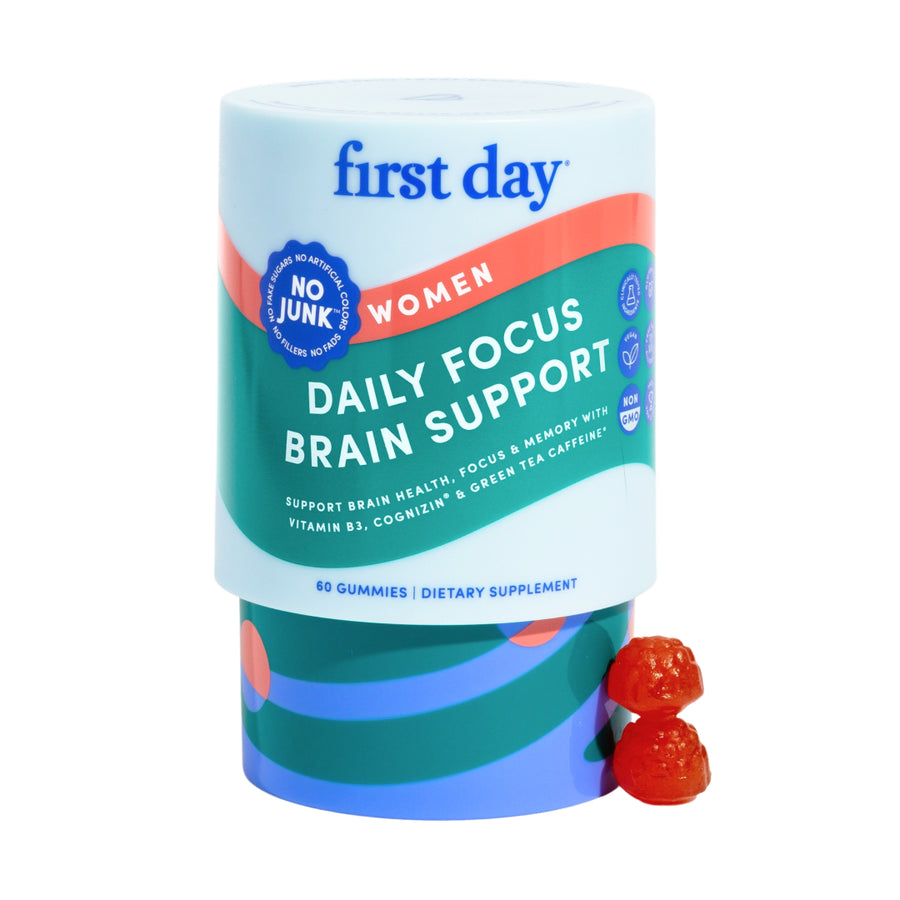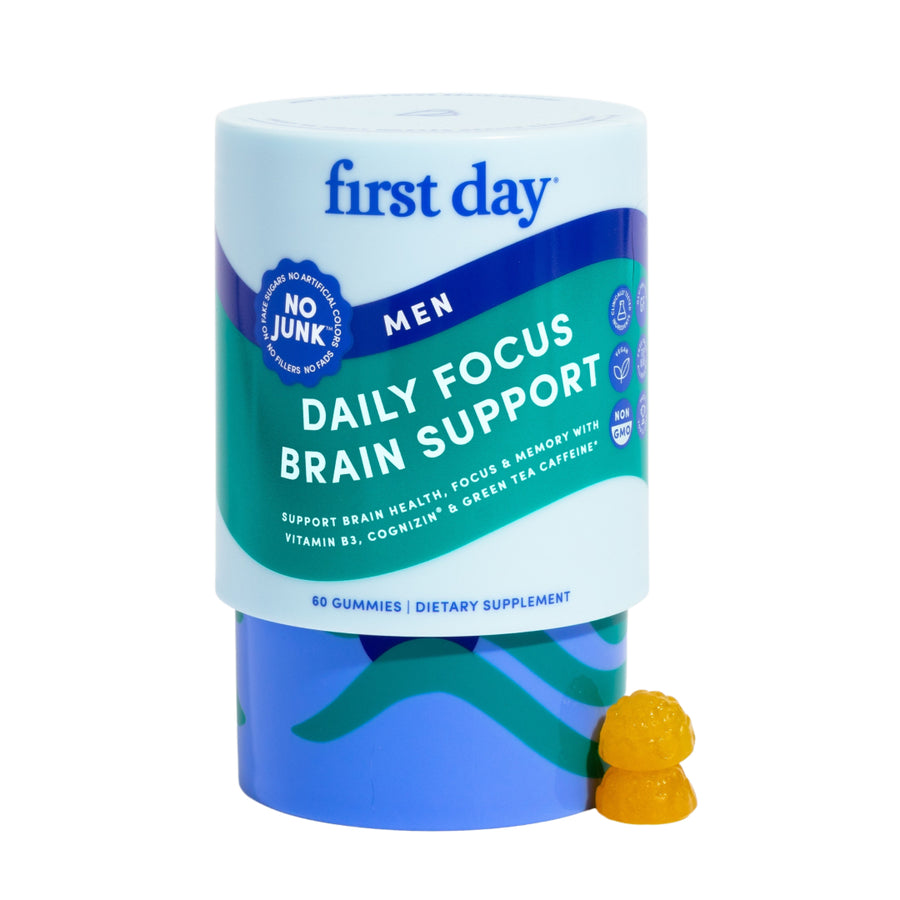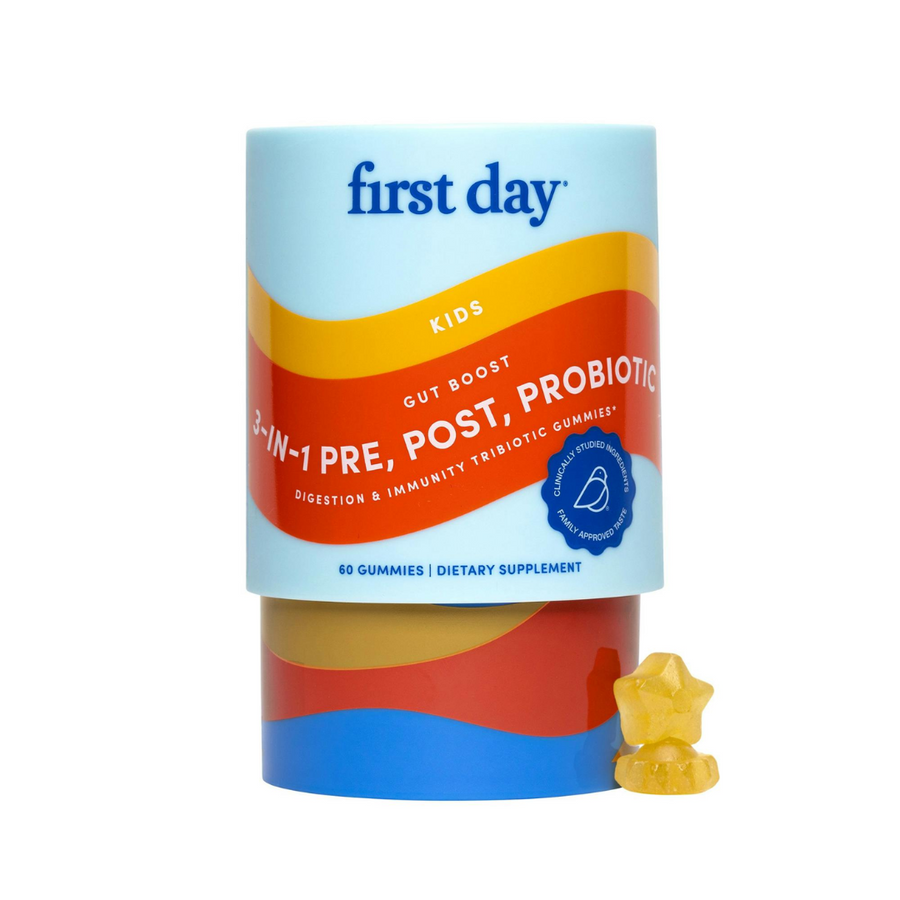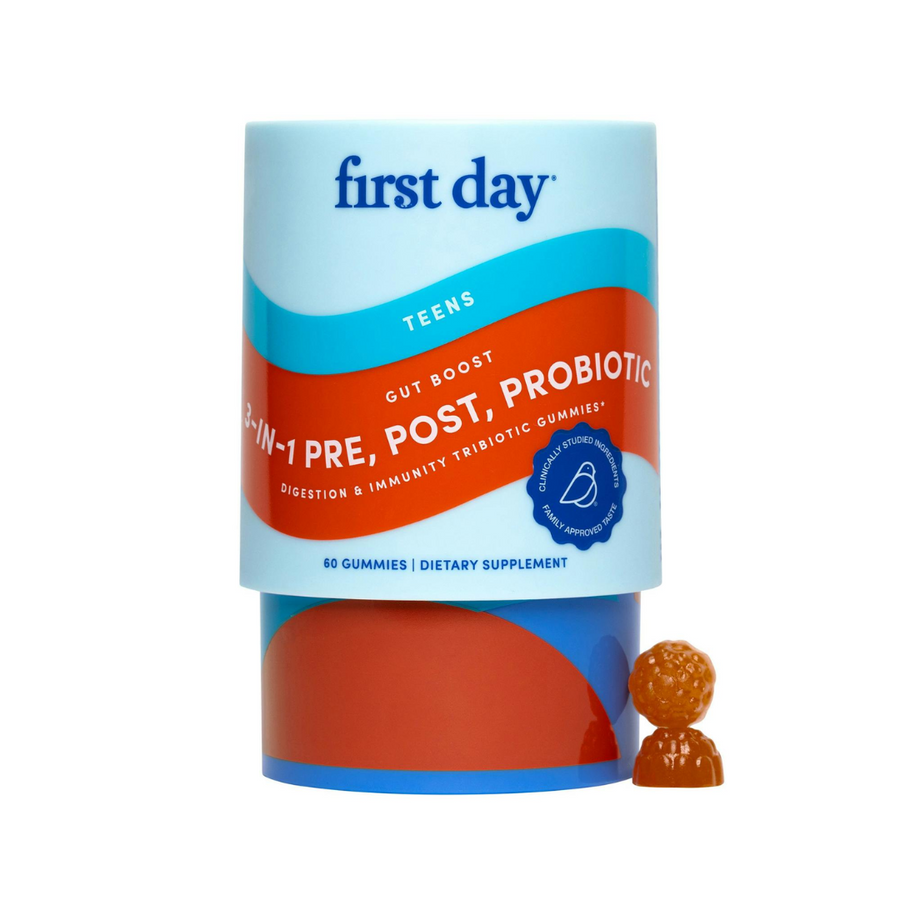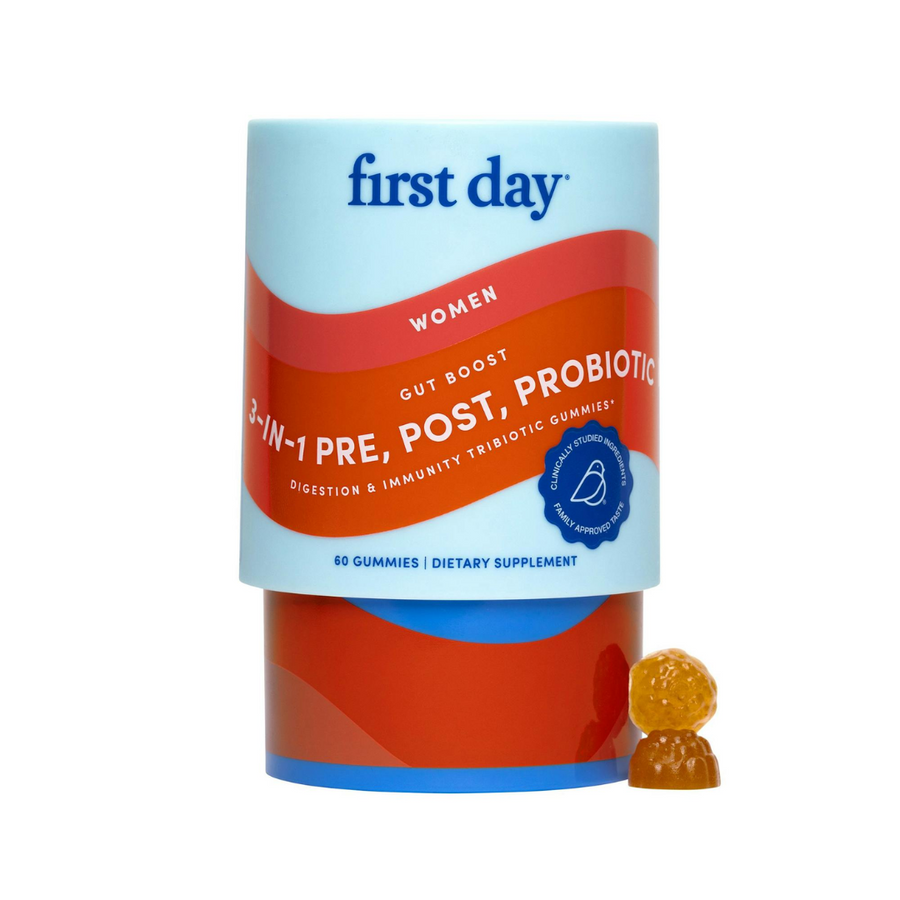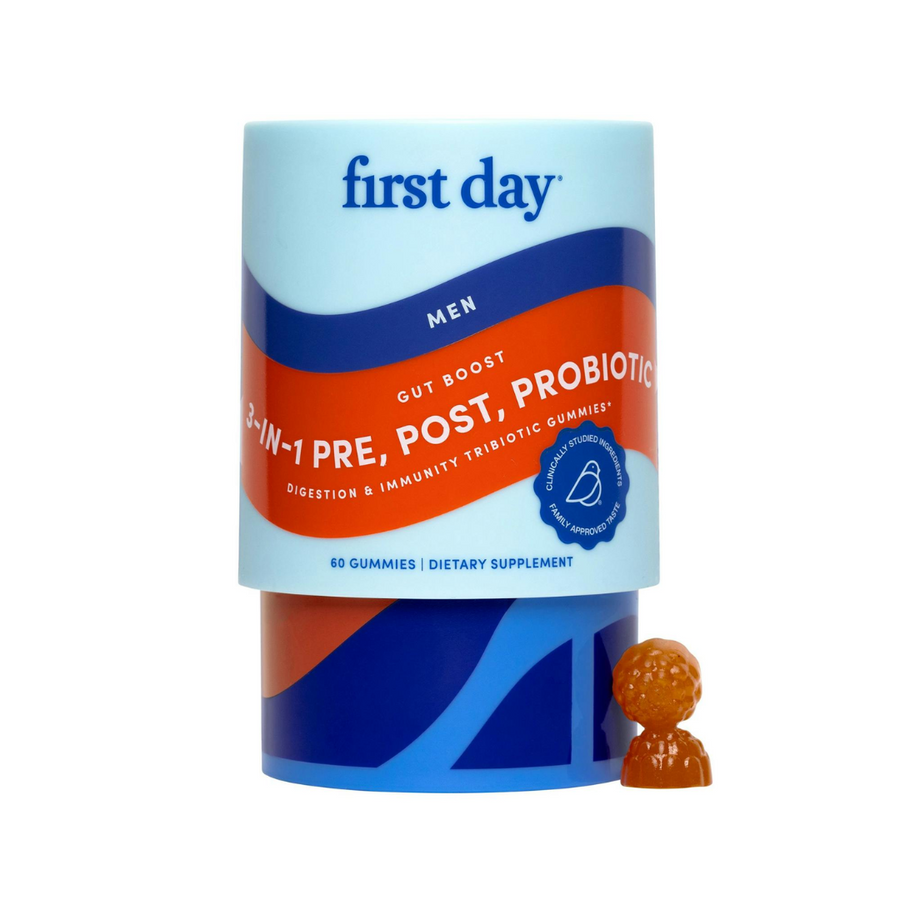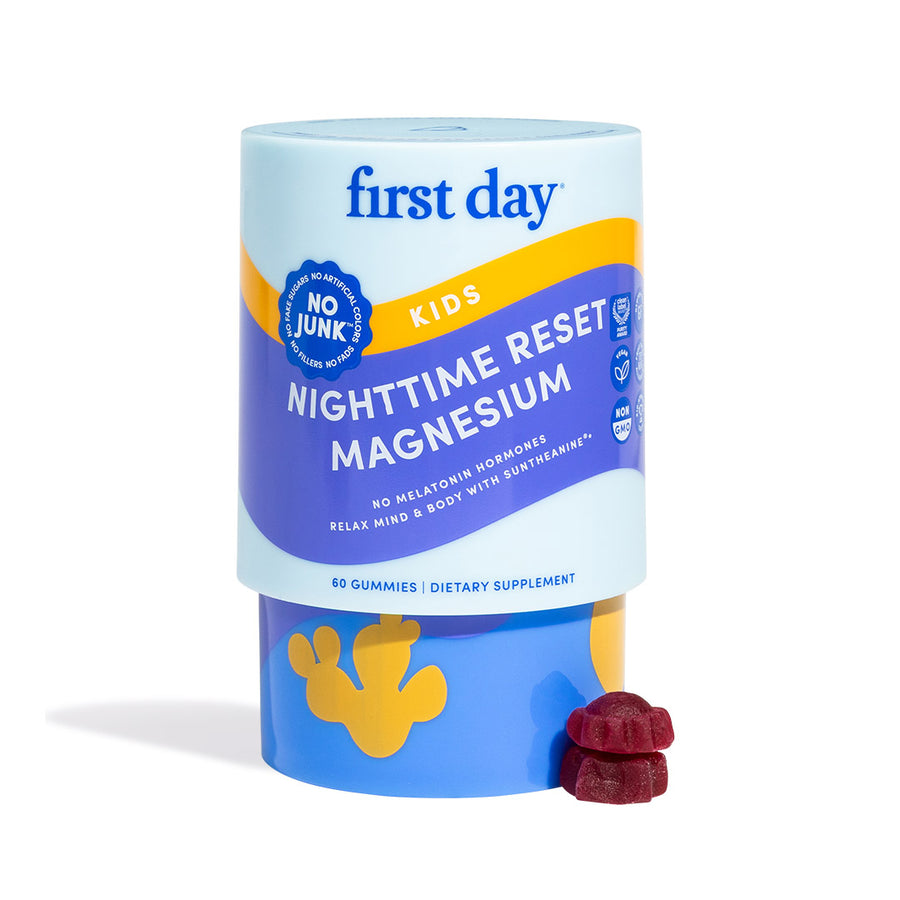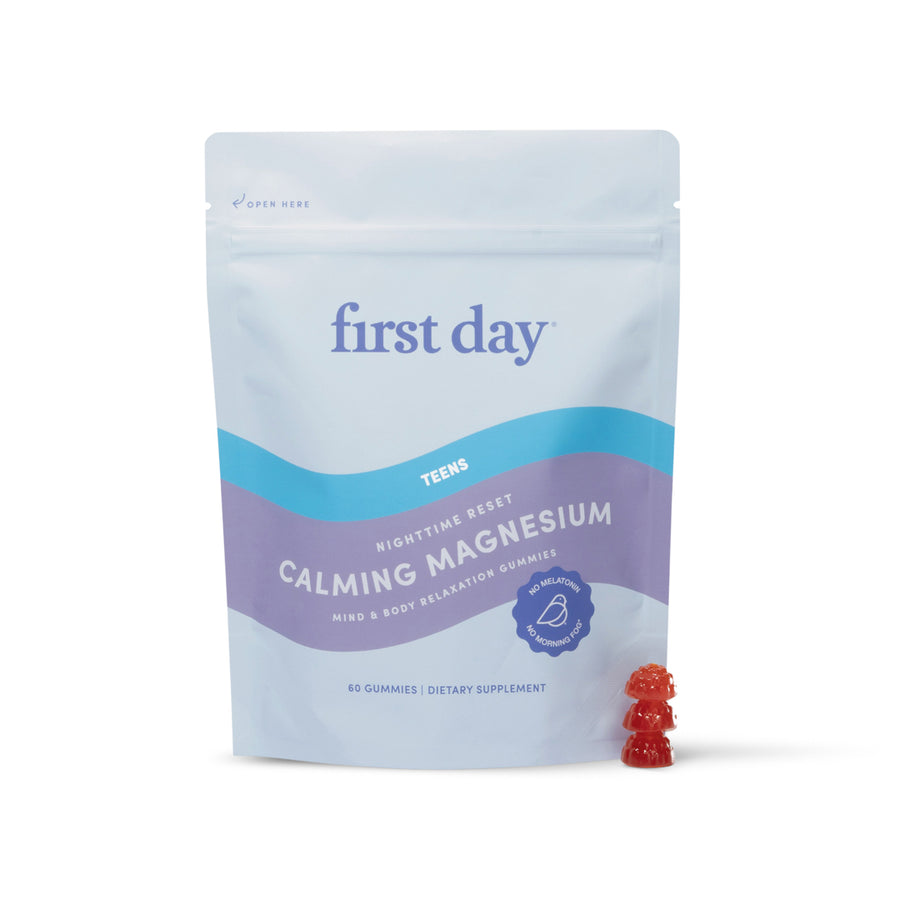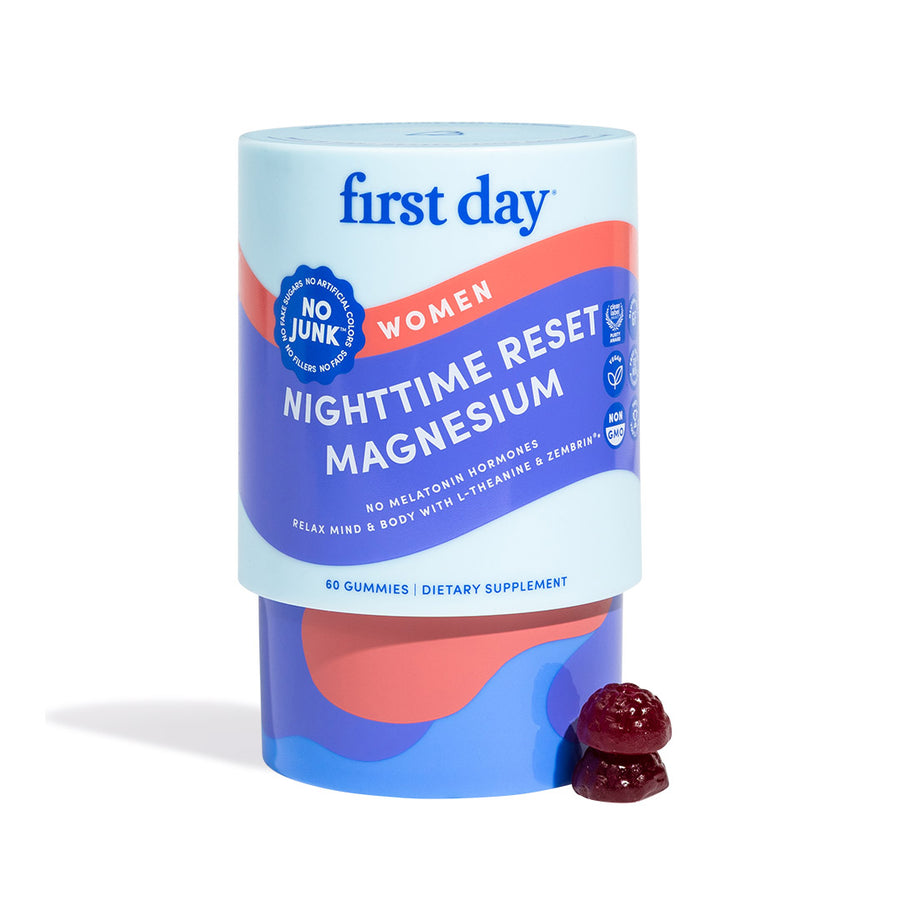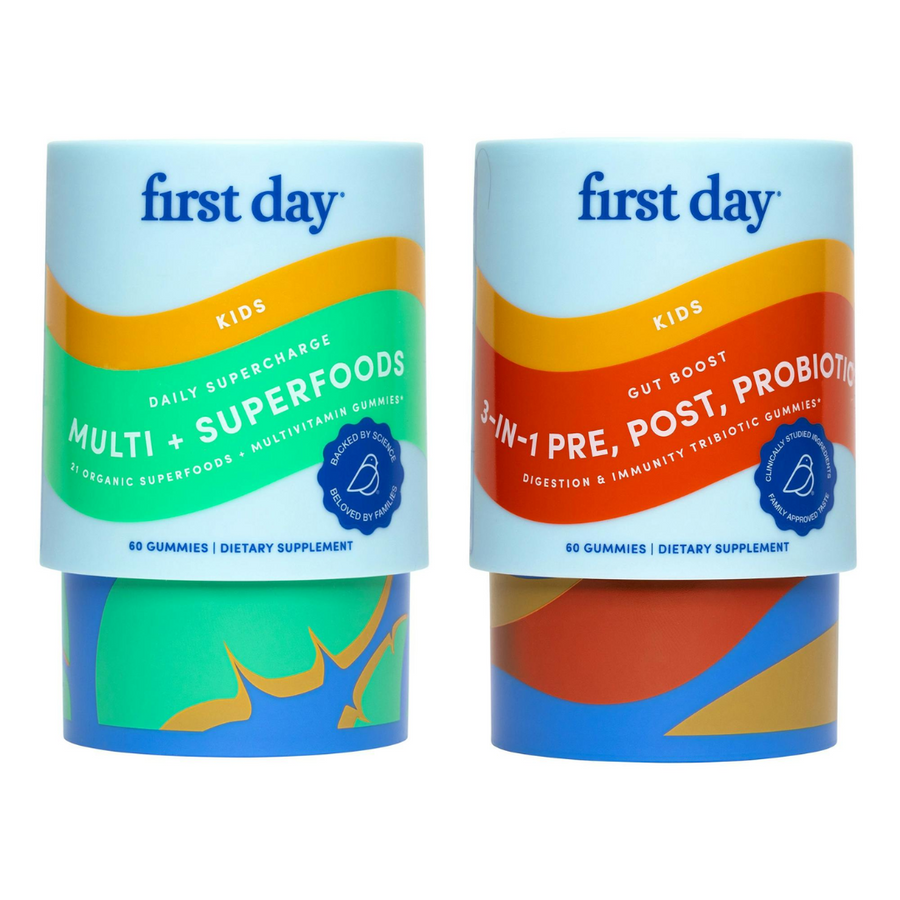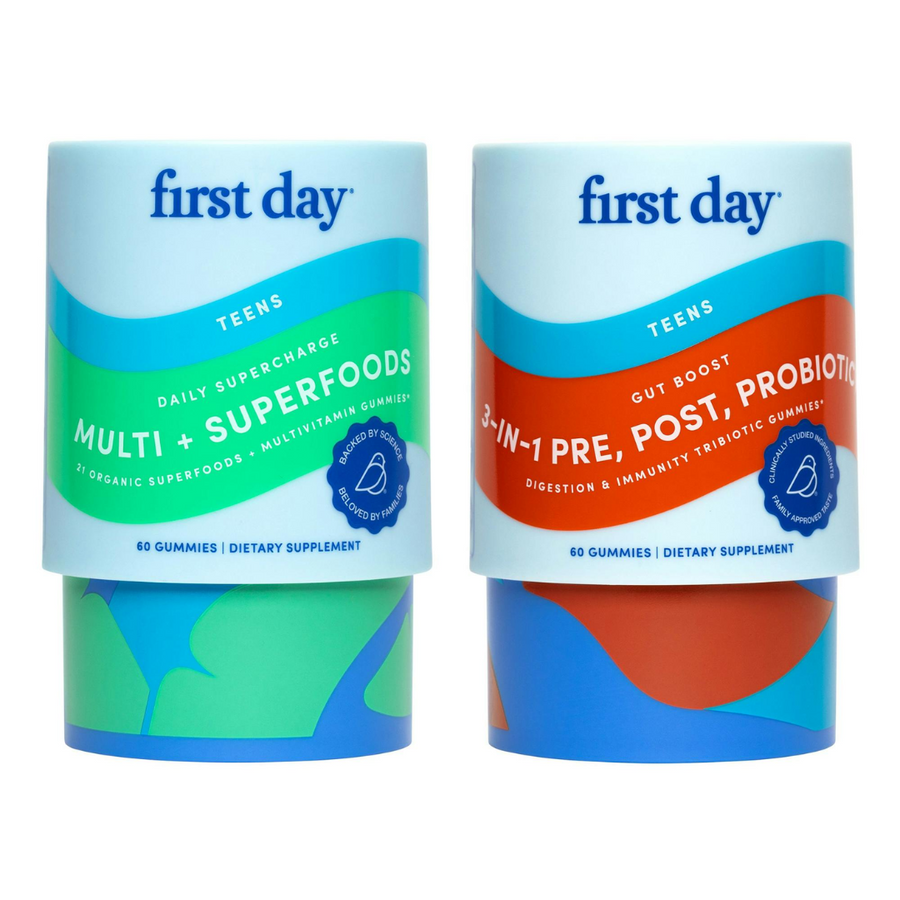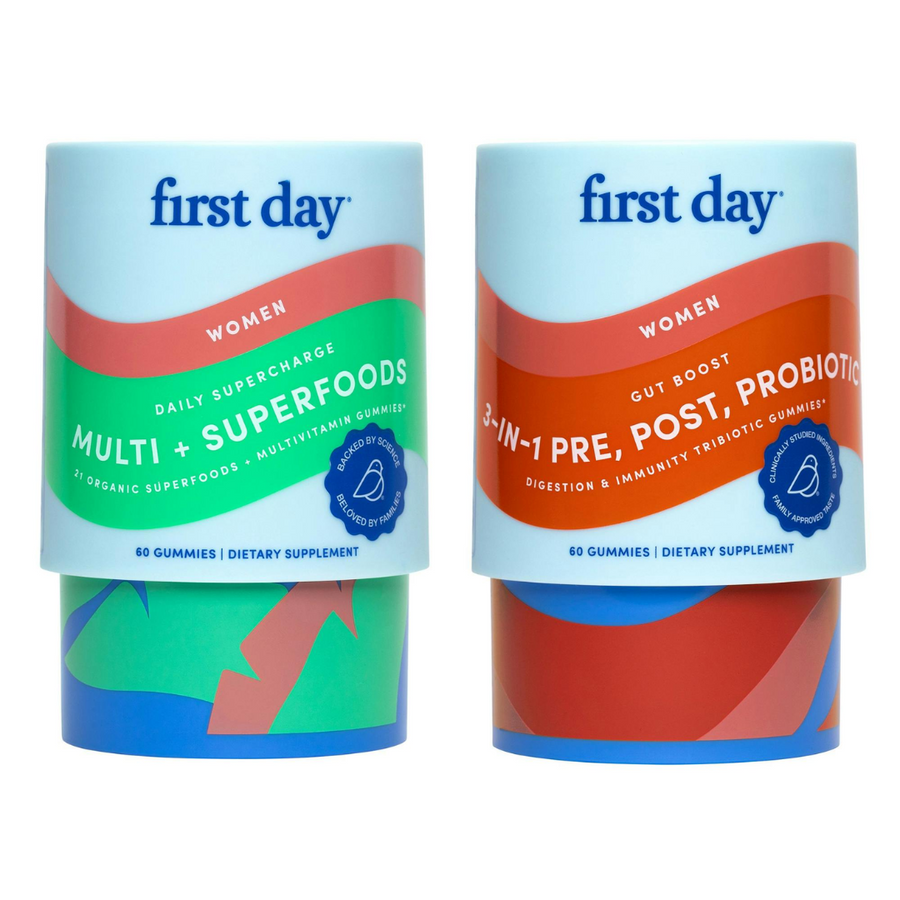You've probably heard the buzz around how crucial good gut health is—not just for your digestive system, but surprisingly, for your mood, skin, and immune health too. It's fascinating to think that what happens in our gut can have such far-reaching effects on our entire body, isn't it?
Now, you find yourself navigating the dietary supplements aisle or scrolling through pages online, coming across those bottles and packets proudly labeled with "prebiotics" and "probiotics." You're intrigued and maybe a bit confused. Naturally, the question pops up in your mind, "Can you take prebiotics and probiotics together?"
If putting these two together means doubling up on health benefits, then why not, right? In this blog post, we're going to unpack that very question - can you take prebiotics and probiotics together - and see what combining these gut health powerhouses can do for you.
Understanding Prebiotics
Prebiotics might not be the conversation starter at your next party, but it's definitely something your gut wants to hear more about. Basically, prebiotics are the ultimate food for the good bacteria in your gut. They're a group of non-digestible fiber compounds that pass undigested through the upper part of your gastrointestinal tract and stimulate the growth or activity of beneficial bacteria that populate your large bowel by acting as food for them.
Now, not all fibers are created equal. Specific fibers qualify as prebiotics, and some common types include inulin, fructooligosaccharides (FOS), and galactooligosaccharides (GOS). These can be naturally found in foods like garlic, onions, leeks, asparagus, bananas, and whole grains.
Here's where it gets interesting – and science-y. Studies have shown that by feeding the beneficial gut microbiome, prebiotics can help improve gastrointestinal health, enhance the absorption of important minerals like calcium, and even potentially reduce the risk of health disorders. For instance, a review published in the Nutrients journal highlighted that the ingestion of certain digestive health prebiotics can support immune function and decrease the risk of certain gastrointestinal diseases.
But how does this all happen? When prebiotics ferment in the colon, they produce short-chain fatty acids (SCFAs) like acetate, propionate, and butyrate. These SCFAs can help nourish colon cells, lead to improved gut health, and play a key role in metabolic health. This fermentation process and SCFA production have been linked in research to benefits such as reduced inflammation and a lower risk of colon cancer.
Deciphering Probiotics
Switching gears to probiotics, these are the live, friendly bacteria, yeast, or spores that are eager to take up residence in your gut. But they are not newcomers to the health world. Probiotics have been part of our diet for centuries, famous in foods like Greek yogurt, kefir, sauerkraut, kimchi, and kombucha.
But all probiotics are not created equal. Live bacteria come in various strains and species, primarily belonging to groups like Lactobacillus, Bifidobacterium, and Saccharomyces. Each type has its specialty. For instance, Lactobacillus rhamnosus GG is linked to fighting and preventing diarrhea, while Bifidobacterium bifidum can help with irritable bowel syndrome (IBS).
On the other hand, spores such as Bacillus coagulans SNZ 1969® are gaining attention for their ability to survive stomach acids and colonize the gut - something that strains like Lactobacillus can struggle with. They can do this because of their protective outer coating, which makes them more resilient and stable when passing through the acidic environment of the stomach. That means they have a better chance of reaching the targeted area and doing their job.
Now, how do these probiotics work their magic? Once they settle in, they get to work by restoring the natural balance of gut bacteria. An imbalance means there are too many harmful bacteria and not enough good bacteria, which can happen due to illness, medication like antibiotics, poor diet, and more. Probiotics intervene by crowding out the bad bacteria, producing substances that lower the pH of the intestine making it less hospitable for the bad guys, and stimulating your immune response to defend against pathogens.
Potential Side Effects
While the idea of popping probiotics and prebiotics sounds like an all-star strategy to support gut health, it's like anything good in life – there can be too much of a good thing. Before you start thinking it's all doom and gloom, most folks can introduce these gut protectors into their diet without a hitch. But, as with introducing any new guests to the party that is your gut, there can be a bit of an adjustment period, or in some cases, a few signs that maybe you're overdoing it.
The cool thing is that science has given us a heads-up about what to watch out for.
Here's the lowdown on potential side effects:
- Bloating and Gas: Ironically, the initial goal of improving your gut health can start with a bit of discomfort. A study in the Clinical and Translational Gastroenterology journal noted that a sudden increase in fiber (hello, prebiotics) might lead to gas and bloating. Your gut needs time to adjust to its new friends.
- Headaches from Biogenic Amines: Some probiotic-rich foods like aged cheeses and fermented products can contain biogenic amines, substances that can affect brain functions and cause headaches in sensitive individuals.
- Infections: Very rare, but for folks with a weakened immune system, there's a small risk that the live bacteria in probiotics can cause infections.
- Allergic Reactions: Less common, but some probiotics or prebiotics sources, especially in supplements or fortified foods, might trigger allergies due to other ingredients present.
Just remember, moderation is key. Most of these side effects are linked to consuming too much too soon or specific individual sensitivities. Starting slow and paying attention to how your body reacts is the best strategy. Taking more than the recommended dose is not only unnecessary, but it can also make you feel worse. Stick to the script, listen to your body, and you’ll be navigating the world of gut health like a pro in no time.
Factors to Consider
After unpacking all the good (and a bit of the challenging) stuff about prebiotics and probiotics, you might be thinking, "Cool, but how do I make this work for me?" Don't worry, we've got you covered.
Choosing the Right Prebiotic & Probiotic Supplements

When it comes to selecting the right probiotic and prebiotic supplements, it's not one-size-fits-all. You'll want to match the product with your specific needs. Here are a few things to consider:
- Prebiotic Source: Look for supplements that contain several prebiotic fibers. For example, at First Day, our tribiotic supplements contain Livaux® which is not just any prebiotic; it's a science-backed source of prebiotics that supports regular bowel movements and eases the annoyance of constipation, bloating, and digestive discomfort.
- Probiotic Source: While probiotics are relatively new to the scene, look for supplements that contain these beneficial microbes. For example, our Tribiotic contains Bacillus coagulans SNZ 1969®, a science-based probiotic bacteria that is all about supporting food digestion, boosting immunity, and even promoting oral health
- Allergies and Intolerances: Before you click "add to cart," scan the ingredient list for common allergens like soy, gluten, dairy, or eggs. Choose products that match your needs.
- Packaging and Storage: Prebiotics are sensitive to moisture and heat. Look for a probiotic supplement that comes in opaque bottles or pouches that protect them from light and moisture. Store them in a cool, dry place.
- Potency: Some prebiotic or probiotic supplements may need to be refrigerated to maintain their potency. Check the label before buying.
- 3-in-1: Instead of having just prebiotics and probiotics separately, you can also choose a supplement that contains both of these ingredients... including a third important ingredient - postbiotics. First Day tribiotics allow you to get the best of all three beneficial gut health ingredients in a delicious gummy, making it easier and more affordable to support your digestive tract.
- Taste: Who wants to gag on a supplement each day? Thankfully, with First Day tribiotics, you and your family can enjoy a yummy taste that would even please the pickiest of eaters. Plus, our gummies are easy to eat and digest.
Don't wait to take control of your gut health! With First Day's tribiotics, you're not just addressing the needs of your digestive system; you're setting the foundation for better overall health and vitality. Our carefully formulated gummies are your ticket to a balanced gut, improved digestion, and a happier you.
Start Your Journey to Optimal Gut Health & Save 15% Today!
Establishing a Healthy Diet
While taking supplements can be helpful for gut health, they should not replace a healthy diet. Eating a variety of whole foods that contain both prebiotics and probiotics is essential for maintaining overall digestive wellness. Here are some tips
- Probiotics: Add fermented foods like yogurt, kefir, sauerkraut, kimchi, or tempeh to your diet.
- Prebiotics: Whole grains (like oatmeal, whole wheat bread), bananas, onions, garlic, leeks, and apples are all excellent sources of prebiotic fiber.
- Hydrate: Drink plenty of water throughout the day to help your body flush out toxins and keep things moving smoothly.
- Combine prebiotics and probiotics: Recipes such as Greek yogurt parfaits with fresh fruit and whole grains, banana smoothies, sauerkraut on a turkey sandwich, or kimchi fried rice are all delicious ways to get the best of both worlds.
Lifestyle Choices
Don't forget that our lifestyle choices can also impact our gut health. Here are a few things to keep in mind:
- Exercise: Regular physical activity can help promote healthy digestion and support a healthy gut.
- Stress Management: Chronic stress can disrupt the healthy balance of good and bad bacteria in our gut. Find ways to manage stress, such as meditation, yoga, or spending time outdoors.
- Avoid Antibiotics if Possible: While antibiotics are sometimes necessary, they can also kill off both good and bad bacteria in our gut. If possible, talk to your doctor about alternative treatments or ways to support your gut health while on antibiotics.
- Avoid Smoking & Excessive Alcohol Consumption: Both smoking and excessive alcohol consumption have been linked to adverse effects on the balance of bacteria in our gut. Limiting these habits can help improve overall digestive health.
Myths and Misconceptions
Navigating the world of gut health can sometimes feel like trying to solve a Rubik's Cube—confusing, with lots of mixed information out there. So let's break down some of the most common myths and misconceptions about prebiotics and probiotics, with a sprinkle of science to keep things legit.
Myth 1: Combining Prebiotics and Probiotics Can Be Harmful
This couldn't be further from the truth! In fact, combining prebiotics (the food for healthy bacteria) with probiotics creates a symbiotic relationship, enhancing the survival and colonization of beneficial bacteria in the gut. This combo, often referred to as 'synbiotics', can amplify health benefits, as evidenced by research in the Nutrition Research Reviews.
Myth 2: All Probiotics Are the Same
First off, not all probiotics are created equal. It's easy to think that a probiotic is a probiotic, but these little guys come in different probiotic strains and species, each with its benefits. For example, our tribiotics are rich in Bacillus coagulans SNZ 1969® which is a spore with a protective shell that makes it through the acidic stomach and into your gut where it can do its work.
Myth 3: More Bacteria Means Better Results
Bigger doesn't always mean better, especially when it comes to the number of bacteria in probiotics. It's tempting to think the more, the merrier, but the effectiveness of probiotics is more about the right type rather than the quantity. A study highlighted that it's the strain and its viability that count, not just packing billions into a capsule. Quality over quantity! And this is a sentiment we at First Day share since our tribiotics are scientifically backed and carefully formulated with the right strains to provide maximum benefits.
So, Can You Take Prebiotics and Probiotics Together?
There's a whirlwind of information out there about gut health and knowing the right steps to take can feel overwhelming. But, it's actually quite simple. Combining prebiotics, probiotics, and even postbiotics can greatly enhance your family’s digestive well-being, setting you all up for a happier, healthier life.
Remember, taking control of your gut health is just one step away. With First Day's tribiotics, you’re not just nourishing your gut; you're investing in your family's overall well-being.
Take the leap and start your First Day today. Your gut will thank you!
Start Your Journey to Optimal Gut Health & Save 15% Today!
References:
Davani-Davari, D., Negahdaripour, M., Karimzadeh, I., Seifan, M., Mohkam, M., Masoumi, S., Berenjian, A., & Ghasemi, Y. (2019). Prebiotics: Definition, Types, Sources, Mechanisms, and Clinical Applications. Foods, 8(3), 92. doi:10.3390/foods8030092
Whisner, C. M., & Castillo, L. F. (2017). Prebiotics, Bone and Mineral Metabolism. Calcified Tissue International, 102(4), 443–479. https://doi.org/10.1007/s00223-017-0339-3
Guarino, M., Altomare, A., Emerenziani, S., Di Rosa, C., Ribolsi, M., Balestrieri, P., Iovino, P., Rocchi, G., & Cicala, M. (2020). Mechanisms of Action of Prebiotics and Their Effects on Gastro-Intestinal Disorders in Adults. Nutrients, 12(4), 1037. https://doi.org/10.3390/nu12041037
Xiong, R.-G., Zhou, D.-D., Wu, S.-X., Huang, S.-Y., Saimaiti, A., Yang, Z.-J., Shang, A., Zhao, C.-N., Gan, R.-Y., & Li, H.-B. (2022). Health Benefits and Side Effects of Short-Chain Fatty Acids. Foods, 11(18), 2863. https://doi.org/10.3390/foods11182863
Silva, Y. P., Bernardi, A., & Frozza, R. L. (2020). The Role of Short-Chain Fatty Acids From Gut Microbiota in Gut-Brain Communication. Frontiers in Endocrinology, 11(25). https://doi.org/10.3389/fendo.2020.00025
Szajewska, H., & Kołodziej, M. (2015). Systematic review with meta-analysis:Lactobacillus rhamnosusGG in the prevention of antibiotic-associated diarrhoea in children and adults. Alimentary Pharmacology & Therapeutics, 42(10), 1149–1157. https://doi.org/10.1111/apt.13404
Guglielmetti, S., Mora, D., Gschwender, M., & Popp, K. (2011). Randomised clinical trial: Bifidobacterium bifidum MIMBb75 significantly alleviates irritable bowel syndrome and improves quality of life -- a double-blind, placebo-controlled study. Alimentary Pharmacology & Therapeutics, 33(10), 1123–1132. https://doi.org/10.1111/j.1365-2036.2011.04633.x
Kang, S., Park, M. Y., Brooks, I., Lee, J., Kim, S. H., Kim, J. Y., Oh, B., Kim, J. W., & Kwon, O. (2021). Spore-forming Bacillus coagulans SNZ 1969 improved intestinal motility and constipation perception mediated by microbial alterations in healthy adults with mild intermittent constipation: A randomized controlled trial. Food Research International, 146, 110428. https://doi.org/10.1016/j.foodres.2021.110428
Ma, T., Shen, X., Shi, X., Sakandar, H. A., Quan, K., Li, Y., Jin, H., Kwok, L.-Y., Zhang, H., & Sun, Z. (2023). Targeting gut microbiota and metabolism as the major probiotic mechanism - An evidence-based review. Trends in Food Science & Technology, 138, 178–198. https://doi.org/10.1016/j.tifs.2023.06.013
Zhang, M., Juraschek, S. P., Appel, L. J., Pasricha, P. J., Miller, E. R., & Mueller, N. T. (2020). Effects of High-Fiber Diets and Macronutrient Substitution on Bloating: Findings From the OmniHeart Trial. Clinical and Translational Gastroenterology, 11(1), e00122. https://doi.org/10.14309/ctg.0000000000000122
Deveci, G., Çelik, E., Ağagündüz, D., Bartkiene, E., Rocha, J. M. F., & Özogul, F. (2023). Certain Fermented Foods and Their Possible Health Effects with a Focus on Bioactive Compounds and Microorganisms. Fermentation, 9(11), 923. https://doi.org/10.3390/fermentation9110923
Liu, X., Zhao, H., & Wong, A. (2024). Accounting for the health risk of probiotics. Heliyon, 10(6), e27908–e27908. https://doi.org/10.1016/j.heliyon.2024.e27908
Huang, Y.-Y., Liang, Y.-T., Wu, J.-M., Wu, W.-T., Liu, X.-T., Ye, T.-T., Chen, X.-R., Zeng, X.-A., Manzoor, M. F., & Wang, L.-H. (2023). Advances in the Study of Probiotics for Immunomodulation and Intervention in Food Allergy. Molecules, 28(3), 1242. https://doi.org/10.3390/molecules28031242
anagenix. (n.d.). Livaux® New Zealand Gold Kiwifruit Powder. Livaux® New Zealand Gold Kiwi Fruit Powder. Retrieved May 11, 2024, from https://livaux.com/
Patangia, D. V., Anthony Ryan, C., Dempsey, E., Paul Ross, R., & Stanton, C. (2022). Impact of Antibiotics on the Human Microbiome and Consequences for Host Health. MicrobiologyOpen, 11(1). https://doi.org/10.1002/mbo3.1260
Capurso, G., & Lahner, E. (2017). The interaction between smoking, alcohol and the gut microbiome. Best Practice & Research Clinical Gastroenterology, 31(5), 579–588. https://doi.org/10.1016/j.bpg.2017.10.006
Lahtinen, S. J. (2012). Probiotic viability – does it matter? Microbial Ecology in Health & Disease, 23(0). https://doi.org/10.3402/mehd.v23i0.18567
